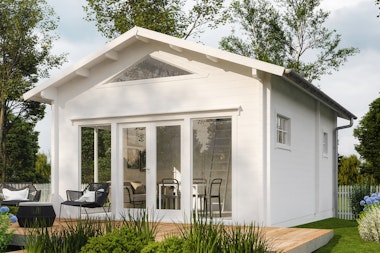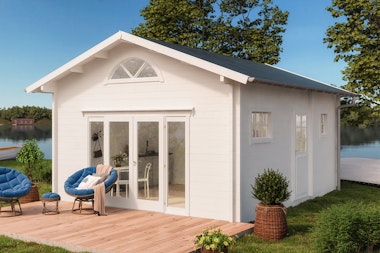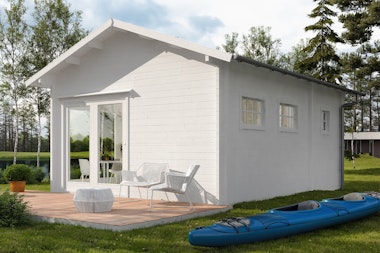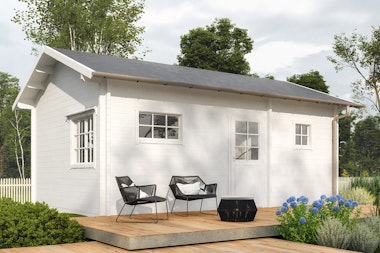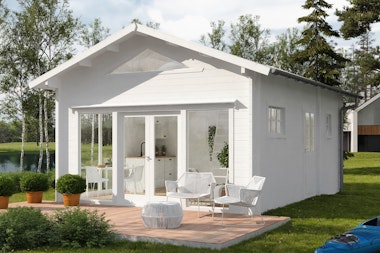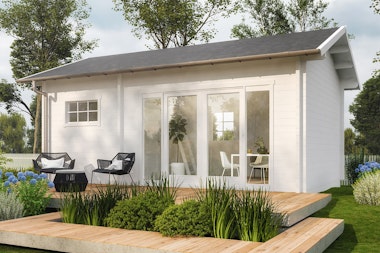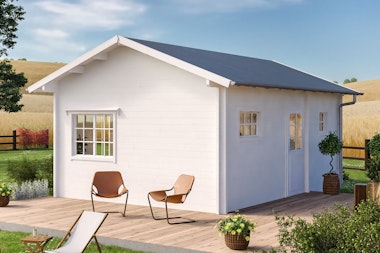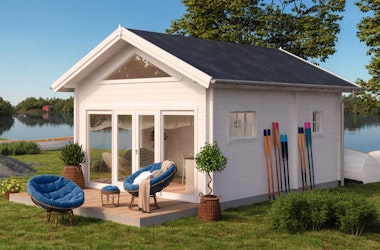Garden House as a Rental Property
Agneta Broman / 2 min reading / Garden house
There are many reasons for wanting a garden house. Perhaps the most common need is extra space, but what that looks like can vary.
Some people need an additional study or library, a place to retreat to. Others may want a guest house for relatives and friends when they visit, or even a home for a son or daughter who’s getting a bit too old to live with their parents but has nowhere else to go.
You might also have several different needs for the same garden house, possibly at different times. Since the house will be there for decades, at some point, you may not even need it at all. That’s when it can be a great idea to rent it out and gain passive income every month. This can also help protect against inflation—when prices increase across society, so can the rent you charge.
Adding a garden house on your property increases its overall value. If it also provides continuous income, it can be an excellent investment. This is particularly attractive now, as many people seek alternative investments instead of putting their hard-earned money into the stock market, hoping for a good return. Historically, real estate has been one of the investment options that, with relatively low risk, has shown strong economic growth.
This concept was one of the driving ideas behind the Attefall reform introduced in Sweden—to help alleviate the housing shortage by allowing homeowners to add an extra house without all the bureaucracy. The regulations stipulated a house slightly larger than a typical garden room, making it suitable for more permanent living. This made it ideal for young people, students, and singles, providing affordable housing without long waits in Sweden’s housing queue.
However, there are a few things to keep in mind before renting out your garden house. We’ve compiled a list for you below.
Find Out Who Will Rent Your Property
The best solution is to find a tenant you know or at least one with mutual connections. Even if the arrangement feels safe, it’s wise to check their references. Don’t rely solely on references—if possible, obtain a credit report to ensure the person is capable of paying the rent.
Check the internet and social media, too. People often post surprisingly private information on Facebook, Instagram, Twitter, and YouTube. Look at the full picture of your potential tenant and ask yourself if this is someone you want to do business with and have as your closest neighbor.
Write a Contract
Writing a contract isn’t about a lack of trust but about preventing misunderstandings. Verbal agreements can be misinterpreted depending on tone, context, etc. Writing down all agreed-upon terms and signing with names and dates provides security for everyone involved.
The contract should include details like the rent amount, notice period, rights and obligations of both parties, and what happens if something breaks. It’s also useful to list the items included, even if you’re renting the space unfurnished. There are templates online, making it easy for anyone without legal training to complete these documents.
Always Ask for a Deposit
Rent is usually paid monthly. Regardless of the payment interval, always require a deposit upfront. Without this, you may find it challenging to receive rent on time. If the tenant leaves without paying, you’ll likely have little chance of recovering any money.
In addition to rent, you can request a security deposit to cover unforeseen events, such as negligence or damage by the tenant.
Local guidelines or regulations may affect the amount of rent you’re allowed to charge, so it’s wise to check these.
Don’t Forget Taxes
Be sure to check where to declare your rental income when filing your tax return. If you’re unsure of the specifics, check your local government’s website.
The best way to get started - our guide!
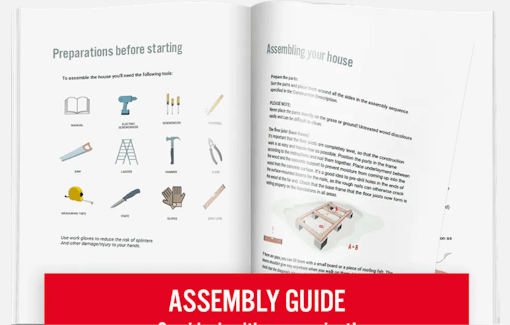
The best way to get started - our guide!
The assembly guide contains valuable tips and advice from our construction experts. A good base and a manual for those who plan to assemble the house themselves. We walk you through what’s important to consider before starting construction, the foundation options our experts recommend, and how the assembly works.
Read all about this and much more in our guide. We will send the assembly guide free of charge to your email. Good luck with your project!


